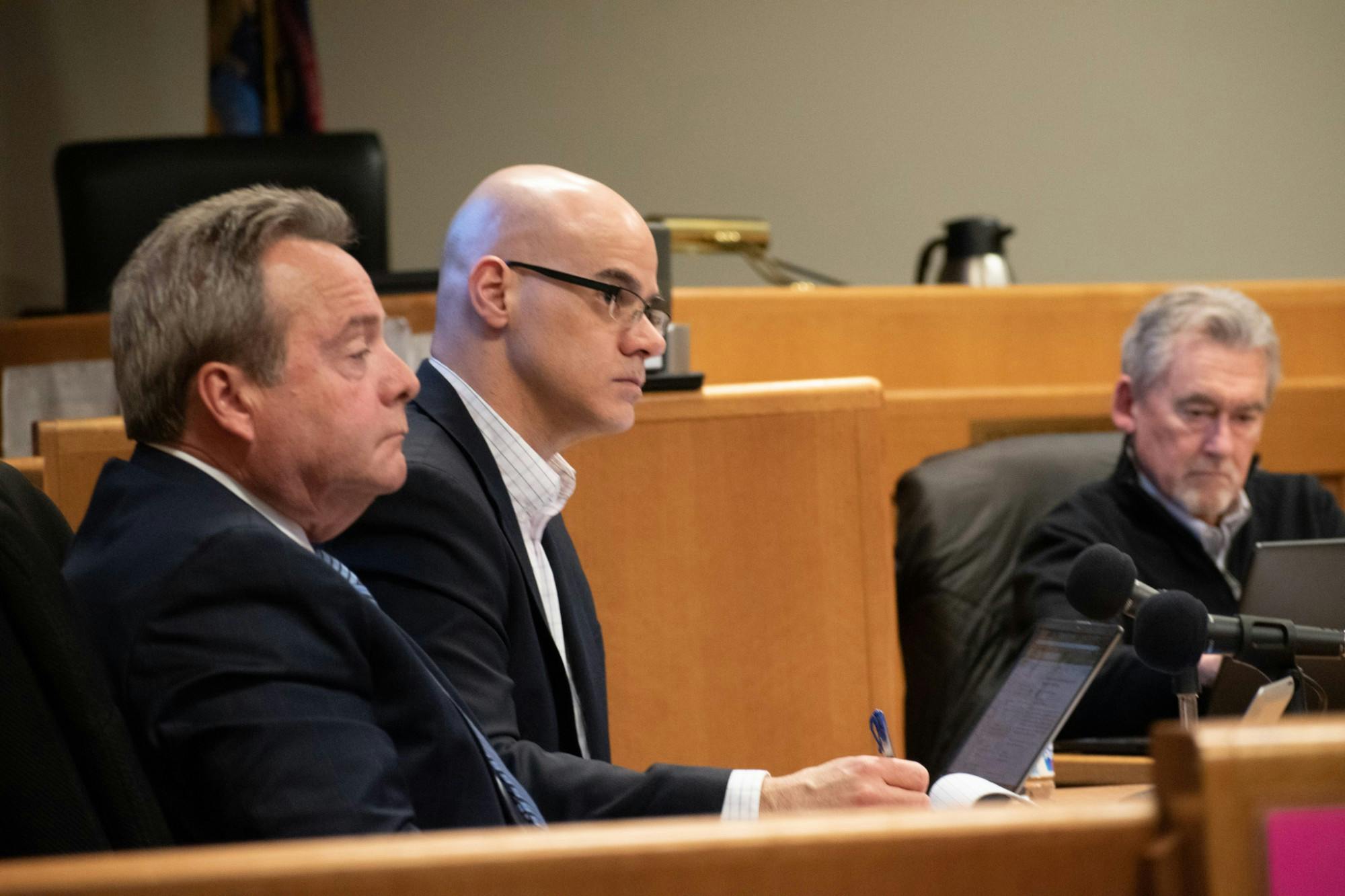The East Lansing City Council further discussed its preliminary fiscal year 2021 budget Tuesday, highlighting areas of concern and initial considerations for its COVID-19 response.
City Manager George Lahanas said there is significant concern over state shared revenue and areas were the city is receiving less, particularly in the parks and recreation and parking departments.
Pandemic policies
As these challenges are being considered, Lahanas said they have been looking internally to control costs by prioritizing capital projects and reducing staff.
In doing so, Lahanas proposed participation in the Michigan Work Share program, which would give the city an opportunity to retain employees with a reduction of hours to save on staff costs and to continue service.
For June and July, he said, there would be a reduction in staff and some outward facing departments would have a modest reduction in hours with City Hall open up to four days a week. Building staff would likewise be on reduced schedules, providing for greater social distancing and allowing for staff available to backfill positions in case of an exposure to the virus in the workplace.
Employers can file applications for the state program online on behalf of the employees.
Employees would collect partial unemployment benefits to make up for a portion of the lost wages as well as additional federal funding through the coronavirus relief bill. All benefits would remain intact provided by the employer.
“You have to act early," Lahanas said. "The longer you wait, the longer you delay, the worse (of a) situation you get and then the more drastic action you have to take to solve problems. So, taking this action early on … I think it’s a responsible thing to do."
Prior to COVID-19, the proposed parking funds budget was projected at $5,146,085. The Parking Task Force supported a grace period increase from 5 to 15 minutes.
Planning, Building and Development Director Thomas Fehrenbach said new concerns have been raised with limited revenue coming in while gated facilities are closed. With many students back at their permanent residences, resulting in a low demand for monthly permits and continued structural costs, he said there is a significant monthly revenue loss and an uncertain end.
Initial considerations for the COVID-19 response include deferring capital projects, parking master plan updates, back-office software integrations and reconsidering agreements with the university.
East Lansing Mayor Ruth Beier said she would support keeping parking free for longer to stimulate downtown businesses.
“We don’t want people to have to worry about parking at least as we’re trying to get the restaurants and businesses open again,” Beier said.
According to Lahanas, there have been discussions to maintain free parking through the month of June, though Council member Jessy Gregg said she does not see that being long enough.
“I am currently operating downtown and even with the gates up on the parking garage, my customers are still complaining about parking … There is just a general resistance and resentment towards the parking structures and especially during this recovery period we have got to remove that barrier to business,” Gregg said. “I’ve got a front row seat for just how bad it is downtown, and it’s pretty bad.”
Last summer, the city piloted free, 30-minute parking in July aimed at stimulating downtown businesses near construction projects.
Director of Public Works Scott House said major impacts from COVID-19 include delays on the non-motorized plan due to a lack of participants for input and expected decreases in road funding, or Act 51 revenues with fewer people driving.
The solid waste fund, including curbside pick-up of trash and recycling, House said, has faced closures, cancellation of services and delays. Among these, the drop-off center for recycling has been closed to reduce staff demand.
Construction and the opening of the Lansing Material Recovery Facility has been delayed and the planned Recycle East Lansing event has been canceled.
Support student media!
Please consider donating to The State News and help fund the future of journalism.
A 4.7% rate increase equating to about $1.69 per month in the water fund is projected for the 2021 budget. A reduced population in the city has likewise led to revenue decreases.
Due to COVID-19, the city has discontinued water turn-offs and limited activity that would disrupt water supply to homes and/or require entry.
Reopening plans
Also at the meeting, council members discussed the consideration of expanded outdoor seating and the potential sale and possession of alcohol. As written, the plan calls for concrete tables creating a dining area with tables spaced at a distance.
Although the actual service of alcohol in the area will take additional research and consideration, Fehrenbach said allowing the consumption of packaged alcohol purchased from local restaurants may be determined by the City Council.
Ordinance language would currently allow alcohol within the barricaded area if purchased from a restaurant near the open-air dining area with a food order.
This raised concern among some council members as issues may arise in attempting to police such actions.
Councilmember Lisa Babcock said under the Sobriety Court program, participants are not allowed in places where alcohol is served without prior permission of the judge, so this presents the risk of restricting these individuals indefinitely from the expanded dining areas.
“The idea is to support people purchasing food and alcohol from the restaurants … We’re trying to ease people into the idea of getting back to the restaurants and supporting the restaurants,” Lahanas said.
Discussion
Share and discuss “EL's COVID-19 policies and 2021 budget plan, discussion of outdoor restaurant seating” on social media.








